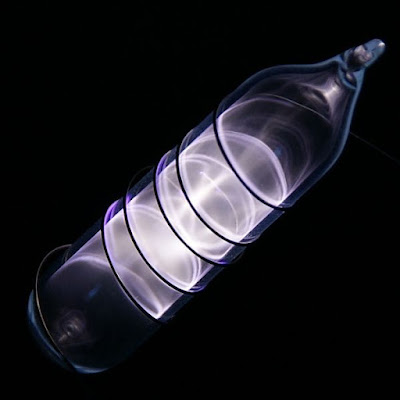Posted on May 30, 2022
This is an update of my post published on May 30, 2011:
On this date in 1898, krypton was discovered.
And by krypton, I don’t mean Superman’s planet!
I am of course referring to the chemical element krypton, atomic number 36. One of the “inert” or noble gases, krypton doesn’t react with other elements (and only rarely can scientists force it to make compounds). Can you name the other noble gases?
Scottish researcher William Ramsey had already – several years earlier, with Lord Rayleigh – discovered the noble gases helium and argon. Ramsey worked with his English student Morris Travers to search for more gases in the helium family. On this day in 1898, they boiled liquefied air until they got rid of the water, oxygen, nitrogen, helium, and argon. The residue produced a unique spectrum with bright yellow and green lines. Ramsey and Travers named this element krypton because it had been hidden—like the other noble gases, colorless, odorless, and tasteless—and kryptos is Greek for hidden.
In the next few weeks Ramsey and Travers discovered two more noble gases, neon and xenon. That means that Ramsey was responsible for discovering almost the entire column of noble gases (lacking only radon)!
So…what about Krypton the planet?
In the DC Comics universe, Krypton is a planet, the birthplace of Superman, that was tragically destroyed by a nuclear chain reaction in its core. The explosion created kryptonite, a material that is the one weakness of the otherwise invulnerable Superman.
Kryptonite is sometimes used as a metaphor for one’s great weakness, just like Achilles’ heel. For example, a dieter could (exaggeratedly) say, “Chocolate chip cookies are my kryptonite.”
For more on krypton and other noble gases, check out Chem 4 Kids.
Also on this date:
Arbor Day in Honduras
Mother’s Day in Nicaragua
|
|
(Last Monday in May)



















